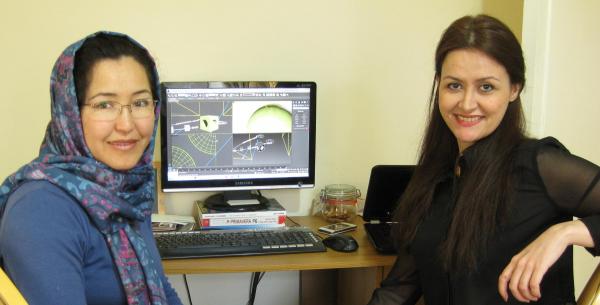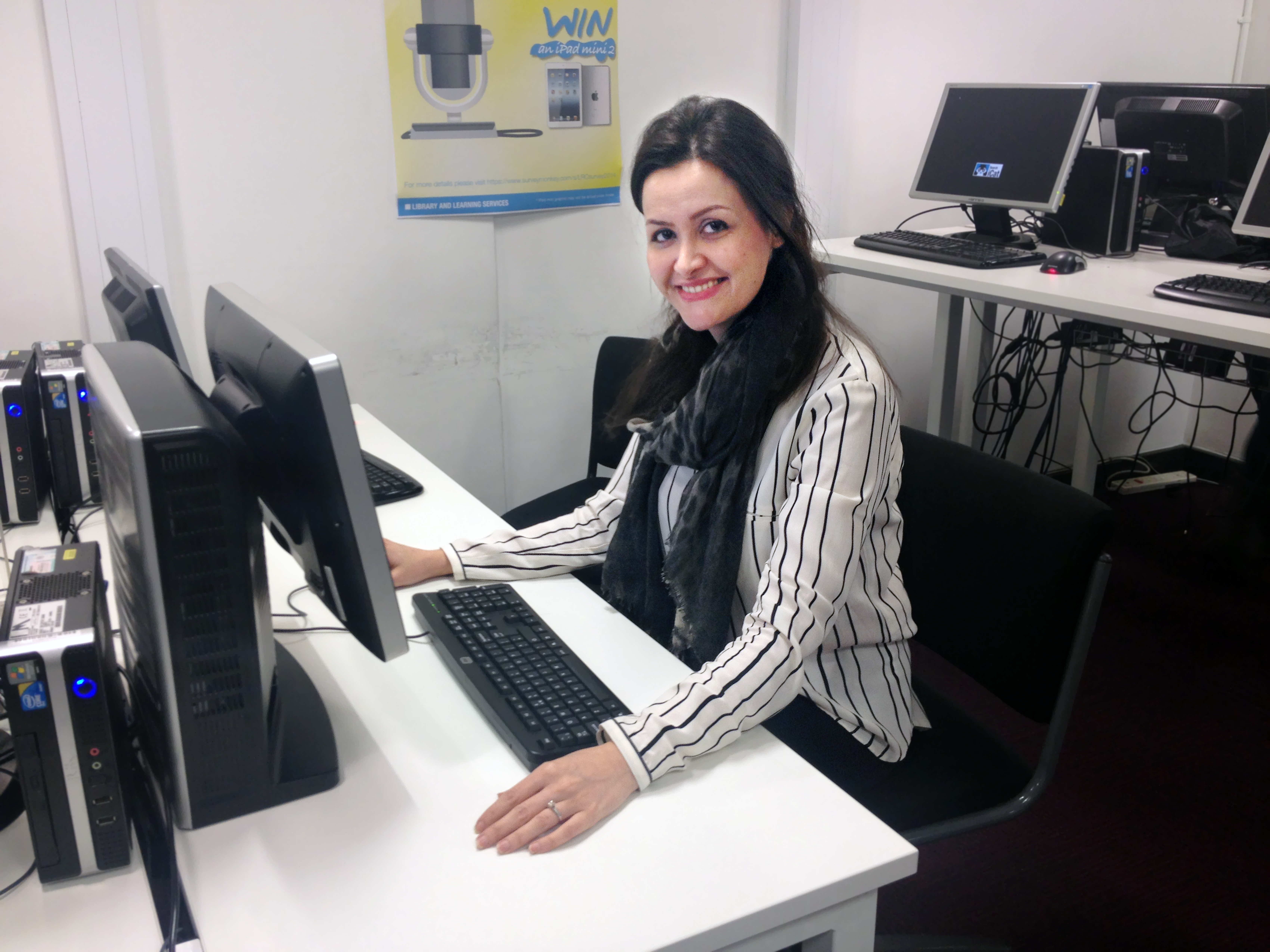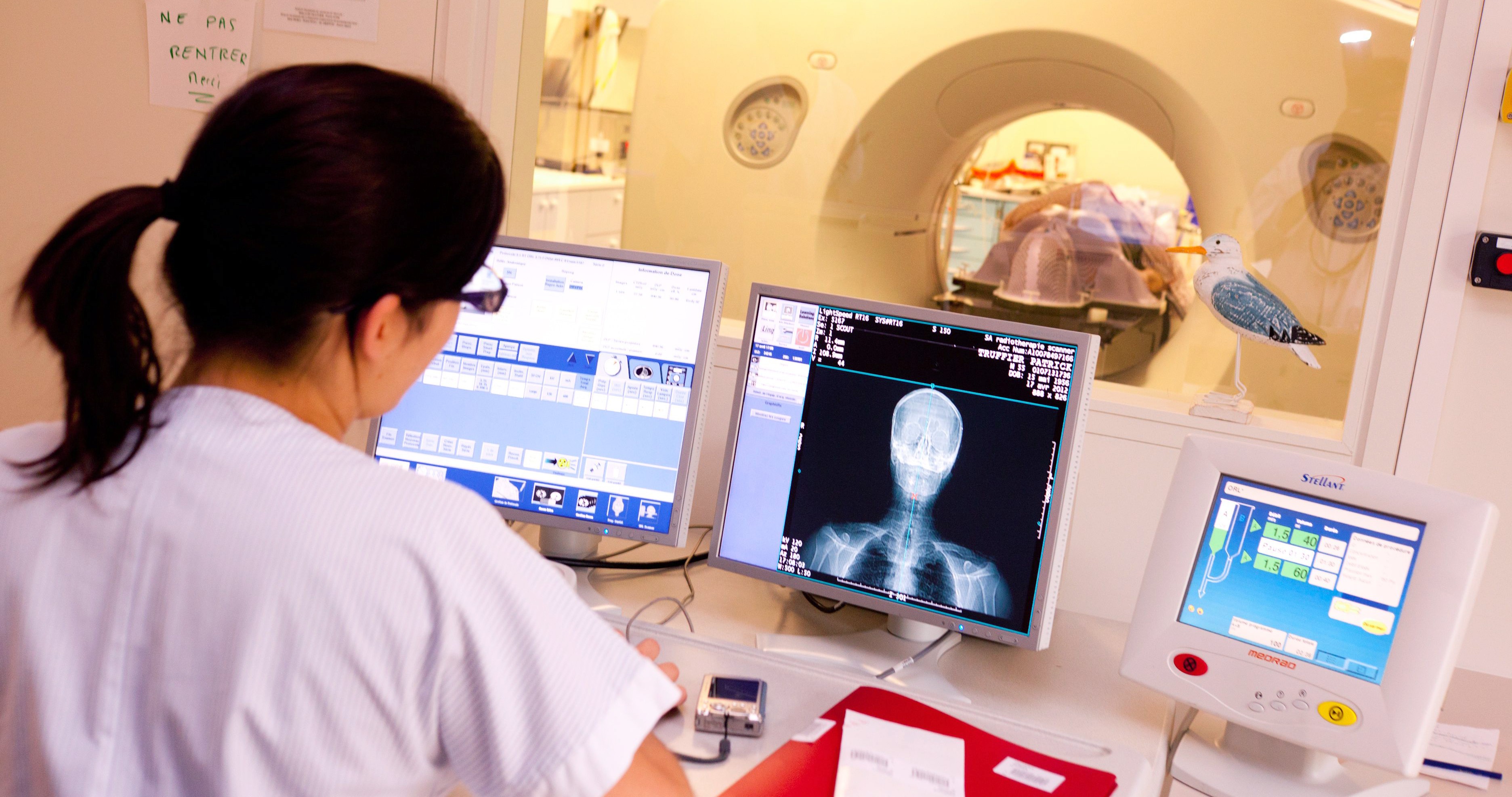She has set her passion for architecture aside to participate in revolutionising cancer treatments. Shabnam Jamshidi, the soon-to-be KU graduate, has joined a company that aims to change the way we cure cancer.
I meet MA architecture student Shabnam Jamshidi, 36, at Penrhyn Road campus. Her graduation ceremony is in two weeks time, and she says: “I’m going to miss the facilities here. I’ve had a great time at Kingston University.”
Together with PHD-researcher Shakardokht Jafari at Surrey University, she set up TrueInvivo: a company that aims to build a device which improves radiation therapy of cancer. The main goal is to send a more accurate and affordable system to third world countries.
Firstly, can you explain radiation therapy used today?
More than 50 per cent of patients need to receive radiation therapy, which is a double-edged sword. High doses of radiation can also kill the healthy tissues near the tumour, whereas low doses of radiation leads to tumour growth. Therefore, quality control plays such an important role to have an optimum radiotherapy outcome.
How did you land this job?
This happened to me really accidentally. I didn’t expect anything like this at all. First I started working with Shakardokht as a helper, and I remember around that time I was so emotional because one of my friends from back home had passed away to cancer. She was so young, and I was thinking to myself ‘However you can make a difference to people, especially people in third world countries, it’s going to be really important’.
Me and Shakardokht were friends and both part of the Persian community in Guildford. In June, we started talking about this as a friendly chat between us. As an architect I have good knowledge of geometry and I’m very good at sketching. I also had experience of preparing a prototype for a professor. This background gave me the ability to be a part of the programme. Gradually it became more serious, and now, we are about to make our own business.

As we understand, you do the visualisation part?
I started helping out with visualisation, but I also contribute in tendering procedure to carry out feasibility studies, time and cost estimation and technical documents. This is a result of years of experience working in a consulting engineers company.
It must be a good feeling thinking about what you have accomplished?
I am delightful Shakardokht and I established the company officially exactly the day after I finished my Master’s degree in architecture. It is such a wonderful feeling knowing you can make a difference in people’s life through your knowledge and abilities.
Cancer affects everyone at some point in life…
Exactly, that’s why it’s such a good feeling to help. I think if the programme will help everyone around the world who is suffering from cancer, you would not get a better treatment, which is nothing you can ignore. This will make a big difference in everyone’s lives.
And now you want to expand the company and start distribution internationally?
Since our solution is cheaper and more efficient than existing devices, it has the potential of reducing cancer care cost in developed countries and to be affordable for developing countries.
How is the health care situation in Iran compared to the UK?
Based on my experience of living in Iran, it’s good and professional. However, the sanctions against Iran have affected the health care system as well as other sectors. This has influenced especially the people who are suffering from diseases such as cancer.

Let’s talk about setting up the business…
We didn’t have the experience of setting up our own business. My previous experience was all about architecture around construction industry and Shakardokht is a medical physicist. We are getting help from the Sirius programme: they are mentoring us and giving us advice on what can be done better. They also introduce us to people we would never get a chance to meet if we were alone. It’s really helpful for us.
Has it been difficult?
It has and still is hard. It’s not a nine to five job. When you are an entrepreneur it takes all your time and particularly when you are a mum of two children or a wife you have other responsibilities. Sometimes you need to sacrifice your family’s happiness.
Has your time at Kingston University contributed to your success?
I was so excited to go back to being a student again after having worked in the architectural industry in Iran and Dubai for 12 years. The university gave me the opportunity to start designing freely and without thinking about obstacles. When you work in the real world of architectural industry, obstacles makes you leave creative thinking. Moreover, at university you get access to the valuable references in the library. Honestly that is what I’ll miss the most when I graduate.
You moved to England in 2011. How was it to come here?
When you go outside your own country, it’s a completely new life. You need to be strong to deal with all the problems. At first, it was tough. Suddenly, after years of experience, I had to start from scratch, so that was quite difficult. But, when you get support such as the Sirius programme, which is designed to create the next generation of successful graduate entrepreneurs, it is heart warming.
Do you think it is easier to be successful in the UK?
I had a chance to go to the good schools, get a proper education and work for the right companies back home. I think the educational system in Iran is good, but can be improved as a developing country. As London has a good business reputation, it is a really good place to be, especially for people who want to start their own business. When you develop quality-controlled tools like ours in the UK, people around the world trust in your work and believe the products will be effective.
What are your plans now?
It’s still early days, but we are excited about the future. We are currently developing our prototype and will then carry out market research and apply for funding. We hope that the product will become an integral part of cancer treatment by the NHS in the UK and by private medical physicists in other parts of the world.
Do you plan to stay in England after your success with TrueInvivo?
I think I owe something to my home country. No matter where I live, I have to give something back to my home country. In fact, I think I owe something to every country that I have learnt something from, and I learnt a lot from the UK as well. My life motto is that you need to give back to any community you have learnt something from.


The last question from the interviewer made me chuckle! No! After people have success with the business they set up they all plan to leave it behind and go somewhere to start from scratch!!
Hi David,
Jamshidi said they wanted to expand their business to other parts of the world. That’s why I asked where she would prefer to live- and her answer was quite open. 🙂